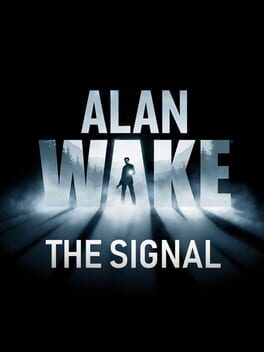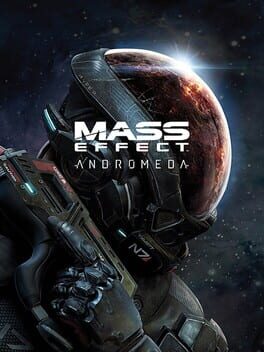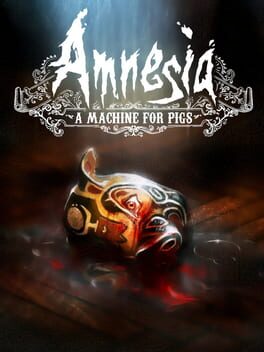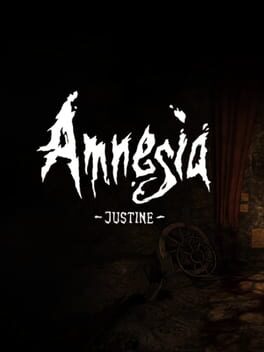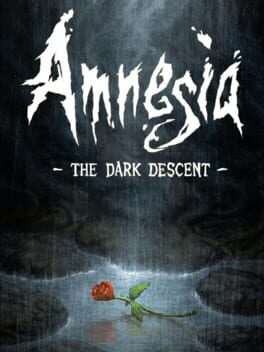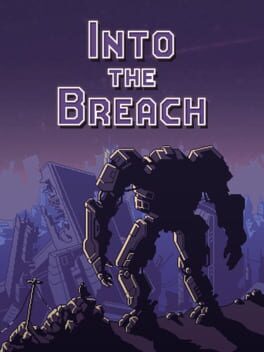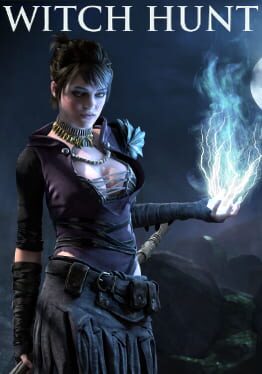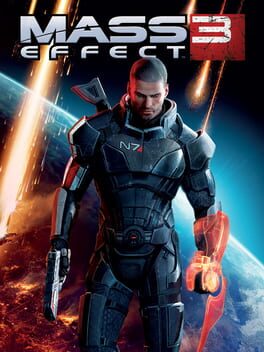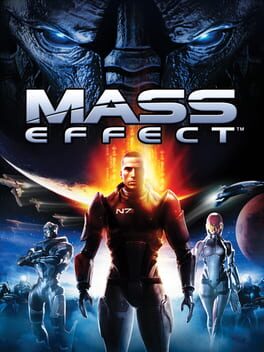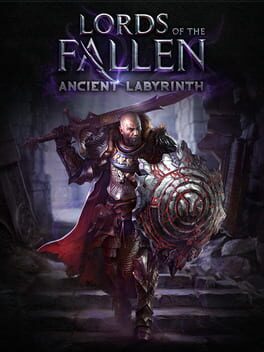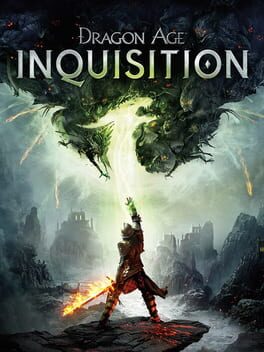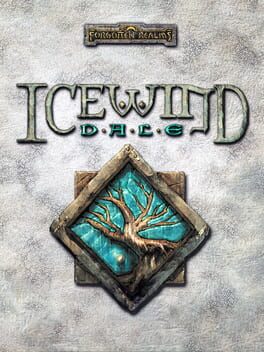squid0812
BACKER
This review contains spoilers
The first Alan Wake DLC episode does well to utilize the gameplay mechanics that were only cursorily explored in the main game (i.e. using the flashlight to cause words to materialize into objects). Unfortunately, the context in which it does this is literally just more of the same - almost every part of this is based on reused assets, many of them barely even tweaked from their appearance in the main game. And what’s new here is a mixed bag. The combat scenarios are quite hard, with frequent situations in which you face off against seemingly endless groups of enemies. This was occasionally interesting but more often I found the combat scenarios to be fatiguing. More down time to vary up the pacing would have been appreciated. And the down time that is here is unfortunately dominated by the constant chattering of Barry, returning here as a figment of Alan’s imagination (it’s just as dumb as it sounds). This ends with a pretty fun boss fight against a bunch of TV sets, but getting there was a bit of a rough putt.
Here’s a deeply strange and mostly unnecessary quasi-sequel to an already flawed game that feels like a botched attempt by the devs at Remedy to wrestle with some conflicted feelings they have about this franchise. For instance, this game feels like at least a partial acknowledgement that original Alan Wake functioned a whole lot better as B-movie schlock than as high-minded psychological horror. But the attempt at a goofier, Twilight Zone-style tonal shift never really lands here, largely because, in both gameplay and narrative, we’re still operating with same old Alan Wake toolbox - gun, flashlight, lots of Taken, and way too much of Alan’s interminable soliloquizing.
First question: Why are the Taken even in this game? It makes zero sense, from a narrative perspective. Worse, from a gameplay perspective, it’s indicative of creative paralysis. Even with some new versions of the Taken (the ones that split in two when exposed to light are a lot of fun), the lack of enemy variety in this franchise continues to blow my mind.
Then there’s Alan, whose writing has somehow become even more pretentious since the original game. Any of the appeal of picking up manuscripts in the original is replaced here with dread - the passages are longer and more ‘philosophical’, even when they are merely lazy exposition dumps intended for people who never played the original. Then there’s the fact that, as with the original, Alan is once again writing the story we are playing through (one of the funniest possible reads of this game is that it’s Remedy’s tacit acknowledgement, finally, that Alan is a terrible writer). Most of the story beats here range from very boring (all of the fetch quests and repetition) to gross (the reliance on women as damsels in distress) to hilariously dated (a mid-2000s one hit wonder playing a key role in rewriting reality). In short, this really does feel like a story Alan Wake would write, which makes this either an extremely narrow satire or one of the least self-aware games I’ve ever played.
I actually prefer the the gun and flashlight combat in this game over the original, for the simple reason that there are more varied guns available. I enjoyed heedlessly mowing down hordes of Taken with an assault rifle or an uzi compared to the more resource-dependent combat of the main game. And therein likely lies the secret of why this is such a limp narrative experience - the real creative muscle here was deployed toward the arcade mode, toward expanding on Alan Wake’s gameplay rather than its narrative. Which is fine, I suppose. But it’s just not why I play these games.
First question: Why are the Taken even in this game? It makes zero sense, from a narrative perspective. Worse, from a gameplay perspective, it’s indicative of creative paralysis. Even with some new versions of the Taken (the ones that split in two when exposed to light are a lot of fun), the lack of enemy variety in this franchise continues to blow my mind.
Then there’s Alan, whose writing has somehow become even more pretentious since the original game. Any of the appeal of picking up manuscripts in the original is replaced here with dread - the passages are longer and more ‘philosophical’, even when they are merely lazy exposition dumps intended for people who never played the original. Then there’s the fact that, as with the original, Alan is once again writing the story we are playing through (one of the funniest possible reads of this game is that it’s Remedy’s tacit acknowledgement, finally, that Alan is a terrible writer). Most of the story beats here range from very boring (all of the fetch quests and repetition) to gross (the reliance on women as damsels in distress) to hilariously dated (a mid-2000s one hit wonder playing a key role in rewriting reality). In short, this really does feel like a story Alan Wake would write, which makes this either an extremely narrow satire or one of the least self-aware games I’ve ever played.
I actually prefer the the gun and flashlight combat in this game over the original, for the simple reason that there are more varied guns available. I enjoyed heedlessly mowing down hordes of Taken with an assault rifle or an uzi compared to the more resource-dependent combat of the main game. And therein likely lies the secret of why this is such a limp narrative experience - the real creative muscle here was deployed toward the arcade mode, toward expanding on Alan Wake’s gameplay rather than its narrative. Which is fine, I suppose. But it’s just not why I play these games.
2010
A mildly interesting failure. I started off hating the story and rather liking the gameplay, and ended up with something closer to the opposite. I’m more or less convinced that there is no video game protagonist less likable than the pretentious, self aggrandizing man-child known as Alan Wake. Seriously, this dude is the worst, and I had a hard time believing that the devs wanted me to sympathize with this asshole. The other characters typically aren’t much better (Barry, the literary agent, is really the only other one who is fully developed and he is a stock comic relief character of the most annoying variety). It wasn’t until I stopped taking the story seriously and started to chuckle at some of the (unintentional?) humor - mostly generated by the drunken, trigger-happy FBI agent who shows up out of nowhere a few chapters in - that I started to tolerate it. I don’t quite get the admiration for the meta-textual accoutrements the story toys around with - some of the details are mildly clever (it’s fun to read hints of what is going to happen later in the game as you collect Alan’s manuscript), but I was disappointed that the game doesn’t really do anything truly imaginative with the melding of fiction and reality until the DLC.
As I mentioned above, I started off appreciating the tension generated by the gameplay - fiddling with batteries, different weapons, etc. I especially enjoyed the tension of trying desperately to run to the next light source without being overwhelmed. The problem: the game never really builds on this, at least until the DLC. You’ll spend all 12 hours of this more or less repeating very similar encounters with repetitive enemies in extremely familiar settings (80% of this takes place in the woods). The lack of imagination here is dire. Frustratingly, the game does finally introduce a potentially interesting, new mechanic - in the last 10 minutes, with no opportunity to actually develop it. Again, the DLC is mildly more engaging in this regard, but on the whole, the failure to build upon the initial gameplay loop here is very close to a fatal flaw.
A game that’s ultimately more bad than good for me, but it’s not without a few points of interest.
As I mentioned above, I started off appreciating the tension generated by the gameplay - fiddling with batteries, different weapons, etc. I especially enjoyed the tension of trying desperately to run to the next light source without being overwhelmed. The problem: the game never really builds on this, at least until the DLC. You’ll spend all 12 hours of this more or less repeating very similar encounters with repetitive enemies in extremely familiar settings (80% of this takes place in the woods). The lack of imagination here is dire. Frustratingly, the game does finally introduce a potentially interesting, new mechanic - in the last 10 minutes, with no opportunity to actually develop it. Again, the DLC is mildly more engaging in this regard, but on the whole, the failure to build upon the initial gameplay loop here is very close to a fatal flaw.
A game that’s ultimately more bad than good for me, but it’s not without a few points of interest.
I don't have much unique to say about this beyond the general consensus - this game is a significant disappointment (although, considering how much it takes from the equally disappointing Dragon Age: Inquisition, maybe we shouldn't have been surprised). All of the issues that mar the work of modern BioWare are here: grindy and repetitive combat, a needlessly complex loot and crafting system, an overabundance of boring and forgettable quests, and so on.
More surprising and concerning, though, are the flaws that affect areas where BioWare normally excels, like the bland and unimaginative world design and the predictable storyline. This is a game that hedged its entire appeal around exploring a new galaxy - yet none of this feels like it takes place outside the series' traditional Milky Way setting. There are only two new alien races, for example - and neither is very interesting or feels like they would be out of place in the Milky Way. The villainous kett, in particular, serve as boring and under-motivated bad guys. Outside of the rather unique tutorial planet, almost all of the worlds you visit are variations on a desert setting - there's hot desert, cold desert, irradiated desert, etc. I was taken aback by how these basically just seemed like higher-res versions of the same desolate landscapes the series featured way back in ME1. Granted, there's more to do here, but it's still mostly just bland shooting and looting. The lack of interesting new environments and alien races is one of the bigger disappointments I had with this game.
The lack of resonant characters and an engaging storyline are also major issues here. Now, I won't say the companions are awful, but I would argue that they are pretty damn uninspired. Like in previous Mass Effects, you start off with two fairly straightforward human companions (this is a series tradition I would be OK with them ditching). Cora's OK, if a little bit stuffy. Liam, on the other hand, continues the tradition of male starter companions being huge doofuses. He's basically that insufferable kid from college who thought that all that was needed to bring peace to the Middle East was a positive attitude and an open mind. He desperately wants to create peace and understanding between the people of the Milky Way and Andromeda galaxies, but as with any 'benevolent' colonialist, he's convinced that only he knows best how to do that (I won't spend much ink on that topic beyond saying that the colonialist undertones in this game are distasteful, to say the least). In short, Liam sucks.
Now, past Mass Effects have made up for the dull human characters with strong alien casts, but even here, Andromeda is lacking. Drack, for instance, is just another ornery and grizzled krogan. He offers nothing about the krogan that we didn't learn from Wrex and / or Grunt. Another example is Peebee, this game's asari companion, who is a simple and obvious inversion of Liara from the original trilogy (spunky and outgoing instead of modest and demure). Most of the alien characters are like this - instead of existing on their own terms, they feel like unimaginative retreads or straightforward tweaks on better characters from past games.
The most frustrating element of all here is that there are still distinct traces of the excellent, old school BioWare writing and scenario development. There are a number of quests that actually sound amazing on paper, like the one where you can trick a group of anti-AI extremists into thinking they successfully 'liberated' your character from the AI hardwired into their brain. Unfortunately, the gameplay loop is so limp, the dialogue so generic that even the most promising premises BioWare devised end up feeling like lost opportunities. Add that on to a main plot that has to be one of the most boring and lazy things that BioWare has ever put out, and you have a real storytelling problem here.
A depressing sign of creative ennui at a formerly great studio, methinks.
More surprising and concerning, though, are the flaws that affect areas where BioWare normally excels, like the bland and unimaginative world design and the predictable storyline. This is a game that hedged its entire appeal around exploring a new galaxy - yet none of this feels like it takes place outside the series' traditional Milky Way setting. There are only two new alien races, for example - and neither is very interesting or feels like they would be out of place in the Milky Way. The villainous kett, in particular, serve as boring and under-motivated bad guys. Outside of the rather unique tutorial planet, almost all of the worlds you visit are variations on a desert setting - there's hot desert, cold desert, irradiated desert, etc. I was taken aback by how these basically just seemed like higher-res versions of the same desolate landscapes the series featured way back in ME1. Granted, there's more to do here, but it's still mostly just bland shooting and looting. The lack of interesting new environments and alien races is one of the bigger disappointments I had with this game.
The lack of resonant characters and an engaging storyline are also major issues here. Now, I won't say the companions are awful, but I would argue that they are pretty damn uninspired. Like in previous Mass Effects, you start off with two fairly straightforward human companions (this is a series tradition I would be OK with them ditching). Cora's OK, if a little bit stuffy. Liam, on the other hand, continues the tradition of male starter companions being huge doofuses. He's basically that insufferable kid from college who thought that all that was needed to bring peace to the Middle East was a positive attitude and an open mind. He desperately wants to create peace and understanding between the people of the Milky Way and Andromeda galaxies, but as with any 'benevolent' colonialist, he's convinced that only he knows best how to do that (I won't spend much ink on that topic beyond saying that the colonialist undertones in this game are distasteful, to say the least). In short, Liam sucks.
Now, past Mass Effects have made up for the dull human characters with strong alien casts, but even here, Andromeda is lacking. Drack, for instance, is just another ornery and grizzled krogan. He offers nothing about the krogan that we didn't learn from Wrex and / or Grunt. Another example is Peebee, this game's asari companion, who is a simple and obvious inversion of Liara from the original trilogy (spunky and outgoing instead of modest and demure). Most of the alien characters are like this - instead of existing on their own terms, they feel like unimaginative retreads or straightforward tweaks on better characters from past games.
The most frustrating element of all here is that there are still distinct traces of the excellent, old school BioWare writing and scenario development. There are a number of quests that actually sound amazing on paper, like the one where you can trick a group of anti-AI extremists into thinking they successfully 'liberated' your character from the AI hardwired into their brain. Unfortunately, the gameplay loop is so limp, the dialogue so generic that even the most promising premises BioWare devised end up feeling like lost opportunities. Add that on to a main plot that has to be one of the most boring and lazy things that BioWare has ever put out, and you have a real storytelling problem here.
A depressing sign of creative ennui at a formerly great studio, methinks.
This review contains spoilers
An intriguing if messy story and some cool atmospherics unfortunately don't make up for the fact that the developers basically stripped away all of the mechanics that made the original Amnesia such a rich gameplay experience. The removal of the darkness / sanity meter and of the entire inventory system might seem forgivable during the creepy and unsettling intro, but these mechanical reductions actually have major ripple effects. The lack of an inventory, for instance, basically eliminates the possibility of having any remotely interesting puzzles, instead replacing them with minor tasks that are at best inconsequential (at worst, they downright waste your time and insult your intelligence). There's no point, for example, in a machine having missing gears if the piece you need to find is on the floor literally right next the machine - these are just dull, half-hearted attempts at adding some gameplay to what is effectively a walking sim. Infuriatingly, the game is also filled with drawers and locked doors - but there is almost never anything interesting or useful to find in them. The first game made exploration worth it by sprinkling tinderboxes and key items throughout the levels - you received a mechanical benefit for exploring. In A Machine for Pigs, you will occasionally find a lore note, but otherwise, there is nothing to discover. So instead of exploring, you mostly just stay on the rails - unlike with the original, every playthrough of this game will be more or less exactly the same. It all contributes to a sense that little thought was put into giving this game even a simple degree of mechanical complexity, and that this would have been better off as a movie rather than a game.
STORY SPOILERS BELOW!!!!!!
What joy I did derive from A Machine for Pigs definitely came from the story and atmosphere. The sound design is outstanding once again, and a number of the set pieces are quite disturbing (the manpig nest is a standout). The writing is consistently above average, as well. Unfortunately, even this area of relative strength isn't without its flaws. Your character's stated motivation, for example, is to find and save his children - but if you haven't guessed that his kids are dead within the first five minutes of the game, then I can only assume that you have never seen a horror movie in your life. There is definitely some unintentional hilarity that results from your character running around shouting about how he will save his boys 90% of the way through the game - even though he has been having visions of them ripping their own hearts out and has read at least two lore notes that explicitly refer to the fact that he already murdered them himself...
Another weird plot beat that is left mostly unexplained - what exactly is the machine's plan? To release a bunch of manpigs to take over the world? Not a great plan (and from a gameplay perspective, this is made worse by the fact that the manpigs simply are not very scary). I actually was really into the idea that main character was traumatized into building a literal deus ex machina after experiencing a future vision of the horrors of the 20th century, but man, some of the plot developments that spring from this idea really miss the mark.
As you can probably guess from the three star rating, I did manage to derive some enjoyment from some of the unsettling environmental details and set pieces. Still, this game can only be called a disappointment when compared with its predecessor (although playing this did make me appreciate The Dark Descent more, at the very least).
STORY SPOILERS BELOW!!!!!!
What joy I did derive from A Machine for Pigs definitely came from the story and atmosphere. The sound design is outstanding once again, and a number of the set pieces are quite disturbing (the manpig nest is a standout). The writing is consistently above average, as well. Unfortunately, even this area of relative strength isn't without its flaws. Your character's stated motivation, for example, is to find and save his children - but if you haven't guessed that his kids are dead within the first five minutes of the game, then I can only assume that you have never seen a horror movie in your life. There is definitely some unintentional hilarity that results from your character running around shouting about how he will save his boys 90% of the way through the game - even though he has been having visions of them ripping their own hearts out and has read at least two lore notes that explicitly refer to the fact that he already murdered them himself...
Another weird plot beat that is left mostly unexplained - what exactly is the machine's plan? To release a bunch of manpigs to take over the world? Not a great plan (and from a gameplay perspective, this is made worse by the fact that the manpigs simply are not very scary). I actually was really into the idea that main character was traumatized into building a literal deus ex machina after experiencing a future vision of the horrors of the 20th century, but man, some of the plot developments that spring from this idea really miss the mark.
As you can probably guess from the three star rating, I did manage to derive some enjoyment from some of the unsettling environmental details and set pieces. Still, this game can only be called a disappointment when compared with its predecessor (although playing this did make me appreciate The Dark Descent more, at the very least).
2011
An abjectly terrifying mini-expansion for the first Amnesia game. I was more or less delighted by how well this utilizes a number of interesting tweaks to the gameplay ideas of the main game in a such a short timeframe (this takes no more than an hour to play). Everything you liked about the main game is here, just turned up to 11: the brilliant sound design is somehow even more atmospheric and dread-inducing, the puzzles are tough as hell (unintuitively so, in one unfortunate case), and the monster design and environmental details are even more creepy (you can bet I won’t forget what the word ‘abacinate’ means any time soon). The story, although brief, is quite clever, as it hinges on a mind-bending twist that brings a new meaning to the term ‘masochist.’
I docked this for two unfortunate demerits that prevent this from being a perfect little expansion. If you die, not only is your game over, but you hilariously get booted to desktop. This isn’t a huge deal for most of the expansion, but it is not a reach to die during the panic of the final chase sequence. A save function seems like it would’ve been a pretty simple add. Second, the puzzle in the library is a real momentum-killer, an illogical dud that had me stuck for way too long.
On the whole, however, this is a tight and well-imagined DLC, arguably even scarier than the main game on a moment-to-moment basis.
I docked this for two unfortunate demerits that prevent this from being a perfect little expansion. If you die, not only is your game over, but you hilariously get booted to desktop. This isn’t a huge deal for most of the expansion, but it is not a reach to die during the panic of the final chase sequence. A save function seems like it would’ve been a pretty simple add. Second, the puzzle in the library is a real momentum-killer, an illogical dud that had me stuck for way too long.
On the whole, however, this is a tight and well-imagined DLC, arguably even scarier than the main game on a moment-to-moment basis.
This review contains spoilers
Due largely to a brilliant combination of extremely creepy sound design and expertly deployed interface manipulation, this is one of the scarier games I’ve played. The slow burn of the early game works on me in a big bad way. The standard haunted house staples (creaking floorboards, distant screams, etc.) work unusually well with the impressive sense of restraint this game has (almost all of the scares rely on brief and opaque glimpses of disturbing things rather than your typical jump scares). This game is stunningly successful at creating the illusion that you are being pursued, even though it’s actually pretty rare that you are in mortal danger.
I was still engaged by the monsters in the second half of the game, but the sense of dread wasn’t quite as potent as I started to see the seams of how the monster encounters worked. Avoiding monsters mostly consists of hiding (spots are plentiful) until the monsters despawn, after which you are basically safe until you hear the next telltale groan. When the monsters first started showing up, hearing the approaching groaning was terrifying, but I became more inured to it as these very similar encounters continued to occur (I wish they had been a bit more creative with deploying the monsters as the game proceeds. There are one or two points where the presence of a monster is fixed and they will never despawn, so you have to figure out a way around them - these were great and tense and I wish the game had more of this). Thankfully, the second half of the game successfully deploys a different kind of horror - namely, the fear of being completely exposed to the whims of a powerful, uncaring force. There are some truly terrifying sequences in which the player discovers evocatively creepy torture devices, and further exploration provides equally unsettling descriptions of their use. As body horror, it’s deeply effective (if perhaps a bit much for the squeamish).
The majority of the playtime here is spent figuring out physics-based puzzles and collecting items in order to proceed. 90% of the puzzles worked fine for me - a few even made me feel clever, which is always a great feeling. The 10% that didn’t work, though, were illogical and annoying (giving away as little as possible, a puzzle involving pipes in the control room and the location of a hatch needed to fix some levers in the nave had me slamming my head against the wall).
As for the story, my feelings on it were similar to how I felt about the gameplay - it starts off very strong, with a solid pitch (the PC intentionally gave himself amnesia - figure out why) and an alluring sense of mystery. The writing and voice acting in the flashbacks and diaries which comprise the game’s storytelling are actually quite competent, especially considering the fairly low budget nature of the game. As the game goes on and gets more gory, the PC learns some less than savory things about himself that tread into some fairly standard yet well-executed ‘there’s darkness within all of us’ tropes. Unfortunately, the ending fell a bit flat for me - it feels a bit goofy rather than scary, and the abrupt and unceremonial (ha) shift to the credits made me feeling like the game was missing an ending cutscene of some kind.
On the whole, an important game that does a spot-on job of using creepy atmosphere to create a sense of pervading dread. Absolutely a must-play for those who love survival horror.
Edit 4/30 - Playing A Machine for Pigs has actually made me like the game more in retrospect - I definitely underrated how rich of a mechanical experience it is, beyond merely being an effective narrative.
I was still engaged by the monsters in the second half of the game, but the sense of dread wasn’t quite as potent as I started to see the seams of how the monster encounters worked. Avoiding monsters mostly consists of hiding (spots are plentiful) until the monsters despawn, after which you are basically safe until you hear the next telltale groan. When the monsters first started showing up, hearing the approaching groaning was terrifying, but I became more inured to it as these very similar encounters continued to occur (I wish they had been a bit more creative with deploying the monsters as the game proceeds. There are one or two points where the presence of a monster is fixed and they will never despawn, so you have to figure out a way around them - these were great and tense and I wish the game had more of this). Thankfully, the second half of the game successfully deploys a different kind of horror - namely, the fear of being completely exposed to the whims of a powerful, uncaring force. There are some truly terrifying sequences in which the player discovers evocatively creepy torture devices, and further exploration provides equally unsettling descriptions of their use. As body horror, it’s deeply effective (if perhaps a bit much for the squeamish).
The majority of the playtime here is spent figuring out physics-based puzzles and collecting items in order to proceed. 90% of the puzzles worked fine for me - a few even made me feel clever, which is always a great feeling. The 10% that didn’t work, though, were illogical and annoying (giving away as little as possible, a puzzle involving pipes in the control room and the location of a hatch needed to fix some levers in the nave had me slamming my head against the wall).
As for the story, my feelings on it were similar to how I felt about the gameplay - it starts off very strong, with a solid pitch (the PC intentionally gave himself amnesia - figure out why) and an alluring sense of mystery. The writing and voice acting in the flashbacks and diaries which comprise the game’s storytelling are actually quite competent, especially considering the fairly low budget nature of the game. As the game goes on and gets more gory, the PC learns some less than savory things about himself that tread into some fairly standard yet well-executed ‘there’s darkness within all of us’ tropes. Unfortunately, the ending fell a bit flat for me - it feels a bit goofy rather than scary, and the abrupt and unceremonial (ha) shift to the credits made me feeling like the game was missing an ending cutscene of some kind.
On the whole, an important game that does a spot-on job of using creepy atmosphere to create a sense of pervading dread. Absolutely a must-play for those who love survival horror.
Edit 4/30 - Playing A Machine for Pigs has actually made me like the game more in retrospect - I definitely underrated how rich of a mechanical experience it is, beyond merely being an effective narrative.
2018
I should start by clarifying that I think that Into the Breach is more or less a flawless game. I docked this one star for purely personal reasons - namely, that puzzle-based strategy games like these generally don’t mesh with my tastes. I have immense respect for this game’s design, yet I can’t quite find it in me to love it. Thus I ended up as a person who played this for 25-30 hours and moved on instead of one of the numerous people I’ve seen online who continue to put in hundreds or even thousands of hours.
The general hook is fine enough (especially true if you are more into mechs and / or kaiju than I am): you guide a team of mechs in grid-based battles against giant alien bugs called Vek. As with the best strategy puzzlers, what at first seems simple is in fact deceptively complex. The degree of complexity is deep without being over-complicated or obtuse. Most impressive of all, much of the game’s complexity is determined by player opt-in. There’s the typical choice of difficulty level, sure, but you can also choose to proceed to the final fight having beaten only two of the game’s four islands (having trouble with the Ice Island?? Being stuck doesn’t mean that you can’t still beat the game). As you play more, you can also unlock different mech squads, with varying levels of difficulty based on the squad’s abilities. I find the base squad well-balanced and appropriately challenging to play with, but those looking to pilot a different strategy (i.e. damage over time, using movement abilities, inflicting status effects, etc.) will have plenty of options. You will also progressively unlock new mech pilots who have unique perks throughout the game. Some perks, like the ability to move after firing on an enemy, are straight-up overpowered, while others are more specialized. Choosing islands, mech squads, pilots, and upgrades makes for an very impressive array of interesting decisions for each run-through. It also makes for a game that has probably the best example of player-selected difficulty that I know of. When I just wanted a quick, relaxing run, I would choose my preferred mech squad, the best available pilots, and probably finish out with the final fight after only two islands. On the other hand, when I wanted a challenge, I could test out a newer squad, take some of the harder-to-use pilots, and try play through all four islands before the finale. The degree to which the game allows you make it quick and breezy or punishing and tense depending on player preference is genuinely outstanding.
I know I’ve talked a lot about difficulty - logically enough, that’s because this game is hard. Thankfully, it’s hard in a satisfying way. This is a game that will force you to make sacrifices to achieve your goal. You will run into situations (especially on higher difficulties), where you will be forced to put your best pilot in the path of a killing blow in order to save the mission. This can produce a lot of tension, but it never became frustrating for me. I think the key to this is that the game gives you perfect knowledge of what the enemy will do on their next move. Now, this might seem like an unfair advantage for the player - it is the rough equivalent of knowing what your opponent’s next move will be in chess, after all. But having this information is actually necessary for the game to work, because the enemy is stronger than you. The Vek have more units, more movement capabilities, and sometimes more health or damage capability than the mechs - the only way make these advantages not seem totally unfair is to offer the player clear information about what they will do next. It ends up working so well - again, I can’t really overstate the sense of tension that this game generates without ever tipping over into frustration.
Puzzlers and strategy are not my thing. Doubly true for mechs and kaiju. But Into the Breach’s beautifully tuned mechanics ultimately made me toss aside my reservations. It’s a hell of a game, one that even a skeptic like me can’t help but recommend.
The general hook is fine enough (especially true if you are more into mechs and / or kaiju than I am): you guide a team of mechs in grid-based battles against giant alien bugs called Vek. As with the best strategy puzzlers, what at first seems simple is in fact deceptively complex. The degree of complexity is deep without being over-complicated or obtuse. Most impressive of all, much of the game’s complexity is determined by player opt-in. There’s the typical choice of difficulty level, sure, but you can also choose to proceed to the final fight having beaten only two of the game’s four islands (having trouble with the Ice Island?? Being stuck doesn’t mean that you can’t still beat the game). As you play more, you can also unlock different mech squads, with varying levels of difficulty based on the squad’s abilities. I find the base squad well-balanced and appropriately challenging to play with, but those looking to pilot a different strategy (i.e. damage over time, using movement abilities, inflicting status effects, etc.) will have plenty of options. You will also progressively unlock new mech pilots who have unique perks throughout the game. Some perks, like the ability to move after firing on an enemy, are straight-up overpowered, while others are more specialized. Choosing islands, mech squads, pilots, and upgrades makes for an very impressive array of interesting decisions for each run-through. It also makes for a game that has probably the best example of player-selected difficulty that I know of. When I just wanted a quick, relaxing run, I would choose my preferred mech squad, the best available pilots, and probably finish out with the final fight after only two islands. On the other hand, when I wanted a challenge, I could test out a newer squad, take some of the harder-to-use pilots, and try play through all four islands before the finale. The degree to which the game allows you make it quick and breezy or punishing and tense depending on player preference is genuinely outstanding.
I know I’ve talked a lot about difficulty - logically enough, that’s because this game is hard. Thankfully, it’s hard in a satisfying way. This is a game that will force you to make sacrifices to achieve your goal. You will run into situations (especially on higher difficulties), where you will be forced to put your best pilot in the path of a killing blow in order to save the mission. This can produce a lot of tension, but it never became frustrating for me. I think the key to this is that the game gives you perfect knowledge of what the enemy will do on their next move. Now, this might seem like an unfair advantage for the player - it is the rough equivalent of knowing what your opponent’s next move will be in chess, after all. But having this information is actually necessary for the game to work, because the enemy is stronger than you. The Vek have more units, more movement capabilities, and sometimes more health or damage capability than the mechs - the only way make these advantages not seem totally unfair is to offer the player clear information about what they will do next. It ends up working so well - again, I can’t really overstate the sense of tension that this game generates without ever tipping over into frustration.
Puzzlers and strategy are not my thing. Doubly true for mechs and kaiju. But Into the Breach’s beautifully tuned mechanics ultimately made me toss aside my reservations. It’s a hell of a game, one that even a skeptic like me can’t help but recommend.
A pretty dull DLC in an otherwise enjoyable game. The interesting premise is mostly wasted - as in Inquisition’s Trespasser DLC, your player character finds himself unneeded and adrift in the time following the main campaign. In this case, the ultimate goal is finding Morrigan, your sorceress companion with an agenda from the main game.
Virtually everything about this feels mailed in from a gameplay standpoint - the companions are only barely sketched, the combat encounters are mostly mobs requiring little strategy, and almost all of the environments are lazily reused. Strangely, this is arguably the most significant piece of Dragon Age DLC from a lore standpoint, as it greatly expands upon the story of the eluvians, which plays a huge role in later games. The final encounter with Morrigan is tantalizing, but the gameplay leading up to it is so limp that it hardly feels worth it.
Virtually everything about this feels mailed in from a gameplay standpoint - the companions are only barely sketched, the combat encounters are mostly mobs requiring little strategy, and almost all of the environments are lazily reused. Strangely, this is arguably the most significant piece of Dragon Age DLC from a lore standpoint, as it greatly expands upon the story of the eluvians, which plays a huge role in later games. The final encounter with Morrigan is tantalizing, but the gameplay leading up to it is so limp that it hardly feels worth it.
2012
This review contains spoilers
Includes spoilers
Mass Effect 3, for all the ink that’s been spilled on it, remains a unique experience in 2021. Once justly derided for its ending, this game now functions as a sort of Rorschach test for how people feel about the series as a whole. This is a game that bizarrely includes some of the most genuinely moving and emotionally resonant moments you will ever experience in any video game (assuming you play 1+2 beforehand, at least) alongside moments of equally staggering stupidity (looking at you, Kai Leng). When this game works, it’s absolutely unforgettable. By the same token, when it’s at its worst, it’s incredibly frustrating.
Starting off with the positive - the Tuchanka and Rannoch storylines in this game are just so unbelievably satisfying and moving. The writers beautifully leverage characters and plot elements from the first two games to bring long-running arcs to their crescendos. I just can’t really imagine a person who played ME1 and 2 and isn’t just completely gutted by what happens to Mordin and / or Wrex in the Tuchanka storyline and to Tali in the Rannoch storyline. Even Legion, who really only made a cameo in the last 10% of ME2, gets a memorable resolution here that is full of well-earned pathos.
Indeed, interaction with companions is one of the major overall wins of ME3 - longtime stalwarts like Garrus and Liara also feel much more fleshed out and real. Pretty much all of the more brief interactions you have with former companions from previous games are spot-on, beautifully balancing nostalgia with the need to move the story forward (Grunt’s last stand is a standout). People justifiably rip on the ending of this game, but it’s also genuinely too bad that moments like the touching scene of saying goodbye to all of your teammates before the final battle or the shooting competition with Garrus in the Citadel got forgotten in the vitriol.
It’s unfortunate that the vitriol exists, but that doesn’t mean it’s not at least partially understandable. Yes, I think the ending is bad (even with the extended cut), but I would actually go further to say that basically anything involving Cerberus in this game is really dumb. I would love to know what jackass at BioWare thought it would be good idea to make one of the game’s main villains a generic space ninja (it was probably the same guy who thought up the equally stupid ‘human reaper’ as the final boss of ME2). The inanity of Kai Leng is a symptom of the larger issue, which is that the morally ambiguous conception of Cerberus from ME2 is thrown out the window, replaced by over-the-top mustache-twirling. This was the Illusive Man’s plan all along? Bumble his way into getting indoctrinated by the Reapers? Cerberus felt like they were building toward something cool in the second game - in ME3, it feels like they are only in the game so that there are humanoid enemy types available for multiplayer.
Which is another issue in and of itself - some of what makes Mass Effect games great was clearly sacrificed on the altar of multiplayer. Side questing and exploration, which were major parts of ME1 (and to a lesser degree, ME2) appear to be the big casualties of the multiplayer focus. Most of the side quests are reduced to simple planet scanning fetch quests that I would’ve rather had been left on the cutting room floor. The side quests that involve actual gameplay are just advertisements for the multiplayer (they take place in what are obviously multiplayer arenas).
Now for the elephant in the room - that ending. I agree that it’s not good. I do think people overstate the problem a bit, though. It is slight and underwhelming, to be sure. Also, I find the constant reminders of the kid who dies at the beginning to be really cheap and exploitative, a perfect example of an unearned emotional payoff. And yes, the choices are predictable, but ultimately I was OK with the outcome of the one I picked, even if I wasn’t particularly moved. Almost a decade on, I generally find the ending to be harmless and inoffensive. Weak praise, I know, but certainly more kind than most people were at launch.
ME3 is a fun game that hits some extremely satisfying high points while also frequently frustrating and annoying me. Still, if you’re a fan of the series, there’s no way you can miss this.
Mass Effect 3, for all the ink that’s been spilled on it, remains a unique experience in 2021. Once justly derided for its ending, this game now functions as a sort of Rorschach test for how people feel about the series as a whole. This is a game that bizarrely includes some of the most genuinely moving and emotionally resonant moments you will ever experience in any video game (assuming you play 1+2 beforehand, at least) alongside moments of equally staggering stupidity (looking at you, Kai Leng). When this game works, it’s absolutely unforgettable. By the same token, when it’s at its worst, it’s incredibly frustrating.
Starting off with the positive - the Tuchanka and Rannoch storylines in this game are just so unbelievably satisfying and moving. The writers beautifully leverage characters and plot elements from the first two games to bring long-running arcs to their crescendos. I just can’t really imagine a person who played ME1 and 2 and isn’t just completely gutted by what happens to Mordin and / or Wrex in the Tuchanka storyline and to Tali in the Rannoch storyline. Even Legion, who really only made a cameo in the last 10% of ME2, gets a memorable resolution here that is full of well-earned pathos.
Indeed, interaction with companions is one of the major overall wins of ME3 - longtime stalwarts like Garrus and Liara also feel much more fleshed out and real. Pretty much all of the more brief interactions you have with former companions from previous games are spot-on, beautifully balancing nostalgia with the need to move the story forward (Grunt’s last stand is a standout). People justifiably rip on the ending of this game, but it’s also genuinely too bad that moments like the touching scene of saying goodbye to all of your teammates before the final battle or the shooting competition with Garrus in the Citadel got forgotten in the vitriol.
It’s unfortunate that the vitriol exists, but that doesn’t mean it’s not at least partially understandable. Yes, I think the ending is bad (even with the extended cut), but I would actually go further to say that basically anything involving Cerberus in this game is really dumb. I would love to know what jackass at BioWare thought it would be good idea to make one of the game’s main villains a generic space ninja (it was probably the same guy who thought up the equally stupid ‘human reaper’ as the final boss of ME2). The inanity of Kai Leng is a symptom of the larger issue, which is that the morally ambiguous conception of Cerberus from ME2 is thrown out the window, replaced by over-the-top mustache-twirling. This was the Illusive Man’s plan all along? Bumble his way into getting indoctrinated by the Reapers? Cerberus felt like they were building toward something cool in the second game - in ME3, it feels like they are only in the game so that there are humanoid enemy types available for multiplayer.
Which is another issue in and of itself - some of what makes Mass Effect games great was clearly sacrificed on the altar of multiplayer. Side questing and exploration, which were major parts of ME1 (and to a lesser degree, ME2) appear to be the big casualties of the multiplayer focus. Most of the side quests are reduced to simple planet scanning fetch quests that I would’ve rather had been left on the cutting room floor. The side quests that involve actual gameplay are just advertisements for the multiplayer (they take place in what are obviously multiplayer arenas).
Now for the elephant in the room - that ending. I agree that it’s not good. I do think people overstate the problem a bit, though. It is slight and underwhelming, to be sure. Also, I find the constant reminders of the kid who dies at the beginning to be really cheap and exploitative, a perfect example of an unearned emotional payoff. And yes, the choices are predictable, but ultimately I was OK with the outcome of the one I picked, even if I wasn’t particularly moved. Almost a decade on, I generally find the ending to be harmless and inoffensive. Weak praise, I know, but certainly more kind than most people were at launch.
ME3 is a fun game that hits some extremely satisfying high points while also frequently frustrating and annoying me. Still, if you’re a fan of the series, there’s no way you can miss this.
2007
This review contains spoilers
Spoilers included
Some aspects of the gameplay don't hold up 2021, but I'd be lying if I said this game doesn't still work for me in a big way. It's arguably the only game in the original trilogy that wants to make the player feel like a space explorer (2 and 3 are much more interested in providing more direct storytelling and smoother combat, by comparison). You can spend hours in this game wandering through dozens of mostly empty planets, doing little more than surveying elements and clearing out the occasional mineshaft or outpost. Many would argue that these barren planets are boring, and they are correct, to a degree. The game would've been better for including deeper side quests (the Batarian asteroid mission from the Bring Down the Sky DLC is a good example of what this might have looked like). Nonetheless, I love the sense of desolation mixed with occasional moments of grandeur and beauty that the player can find by roving through the environments - it makes you genuinely feel like a pioneer, probing the outer reaches of dangerous, undiscovered worlds.
This is to say nothing of the story, characters, and roleplaying, which remain very enjoyable today. The process of slowly uncovering that the antagonist is just another brainwashed lackey of a much greater threat is very satisfying, and the scene in which Sovereign reveals himself remains one of my favorite 'Oh, shit!' moments in gaming. The companions, a typical BioWare staple, are mostly solid. The game actually starts out rough in this area by forcing you to work with the extremely bland Kaidan Alenko and the only slightly more interesting Ashley Williams. But things improve rapidly when the aliens join the show. Wrex is a candidate for my favorite companion in the series - a seemingly vicious hardass who is too jaded to admit that he cares deeply for his beleaguered people. Garrus persists throughout all three games as a complex foil for the player character, a fundamentally impressionable guy who subtly chafes at the fact that Shepard is everything he has always wanted to be. Liara and Tali are excellent additions as well, even if they fall a little closer to standard archetypes. How you choose to interact with these characters and with the game world is an engaging scenario for roleplaying within the paragon/renegade system, which refreshingly trades in the traditional good vs. evil dichotomy for something closer to idealist vs. cynic. It’s a subtle difference that seems a bit blasé today, but at the time it was more nuanced than the vast majority of RPGs being released.
As I mentioned at the beginning, there are parts of this that have aged poorly (you spend way more time than is necessary fighting in the extremely janky Mako). But on the whole, this remains a fun and engaging start to one of my favorite roleplaying franchises.
Some aspects of the gameplay don't hold up 2021, but I'd be lying if I said this game doesn't still work for me in a big way. It's arguably the only game in the original trilogy that wants to make the player feel like a space explorer (2 and 3 are much more interested in providing more direct storytelling and smoother combat, by comparison). You can spend hours in this game wandering through dozens of mostly empty planets, doing little more than surveying elements and clearing out the occasional mineshaft or outpost. Many would argue that these barren planets are boring, and they are correct, to a degree. The game would've been better for including deeper side quests (the Batarian asteroid mission from the Bring Down the Sky DLC is a good example of what this might have looked like). Nonetheless, I love the sense of desolation mixed with occasional moments of grandeur and beauty that the player can find by roving through the environments - it makes you genuinely feel like a pioneer, probing the outer reaches of dangerous, undiscovered worlds.
This is to say nothing of the story, characters, and roleplaying, which remain very enjoyable today. The process of slowly uncovering that the antagonist is just another brainwashed lackey of a much greater threat is very satisfying, and the scene in which Sovereign reveals himself remains one of my favorite 'Oh, shit!' moments in gaming. The companions, a typical BioWare staple, are mostly solid. The game actually starts out rough in this area by forcing you to work with the extremely bland Kaidan Alenko and the only slightly more interesting Ashley Williams. But things improve rapidly when the aliens join the show. Wrex is a candidate for my favorite companion in the series - a seemingly vicious hardass who is too jaded to admit that he cares deeply for his beleaguered people. Garrus persists throughout all three games as a complex foil for the player character, a fundamentally impressionable guy who subtly chafes at the fact that Shepard is everything he has always wanted to be. Liara and Tali are excellent additions as well, even if they fall a little closer to standard archetypes. How you choose to interact with these characters and with the game world is an engaging scenario for roleplaying within the paragon/renegade system, which refreshingly trades in the traditional good vs. evil dichotomy for something closer to idealist vs. cynic. It’s a subtle difference that seems a bit blasé today, but at the time it was more nuanced than the vast majority of RPGs being released.
As I mentioned at the beginning, there are parts of this that have aged poorly (you spend way more time than is necessary fighting in the extremely janky Mako). But on the whole, this remains a fun and engaging start to one of my favorite roleplaying franchises.
A game that gets far more hatred than it actually deserves, Dark Souls II's greatest sin for many people is that it isn't Dark Souls 1. Nevertheless, it is a fun game, despite some obvious flaws. As in all of the Souls games, there are plenty of ineffable enemy and environmental designs - areas like Drangleic Castle and the Shrine of Amana impress with their atmosphere of gloom and foreboding, while some other levels stand out simply for being extraordinarily beautiful (Heide's Tower of Flame, the Dragon Aerie, etc.) Character customization is deeper and more varied here as well, with the option to dual wield being an excellent addition. Not a popular opinion I know, but I prefer the more diverse combat possibilities of this game to the slightly more restrictive choices offered by the original.
That being said, some of the criticisms leveled at this game are definitely legitimate. Most significantly, the world and level design here suffer dramatically in comparison to the original. No matter how good-looking or atmospheric some of the levels are, it's undeniable that they don't fit together in a way that makes any sense. Too many of the levels are simply straightforward hallways as well - don't play this expecting the dense level design of Dark Souls III or Bloodborne. The story, while hinting at some potentially resonant themes about memory and the loss of one's identity, is an opaque mess (Aldia, a Mephistopheles-like figure, is added to the Scholar of the First Sin edition basically to periodically help explain the plot.) While some of the bosses (Pursuer, Lost Sinner, Velstadt, etc.) are cool, there are a number of filler bosses thrown in, which inevitably detracts from some of the excitement when you unexpectedly wander into a boss arena.
Still, an enjoyable game that shouldn't be neglected merely because it's not a generation-altering masterpiece like it's predecessor.
That being said, some of the criticisms leveled at this game are definitely legitimate. Most significantly, the world and level design here suffer dramatically in comparison to the original. No matter how good-looking or atmospheric some of the levels are, it's undeniable that they don't fit together in a way that makes any sense. Too many of the levels are simply straightforward hallways as well - don't play this expecting the dense level design of Dark Souls III or Bloodborne. The story, while hinting at some potentially resonant themes about memory and the loss of one's identity, is an opaque mess (Aldia, a Mephistopheles-like figure, is added to the Scholar of the First Sin edition basically to periodically help explain the plot.) While some of the bosses (Pursuer, Lost Sinner, Velstadt, etc.) are cool, there are a number of filler bosses thrown in, which inevitably detracts from some of the excitement when you unexpectedly wander into a boss arena.
Still, an enjoyable game that shouldn't be neglected merely because it's not a generation-altering masterpiece like it's predecessor.
I know that have these companies have the bottom line to worry about, but it is still really frustrating to see so many developers churn out crap DLC just for the sake of it.
The title really gives this one away. The DLC adds a generic labyrinth to the game. There is really nothing to the aforementioned maze - it’s another crypt-like environment in a game that is full of them. The new enemies are just skeleton warriors with obnoxiously inflated damage and health. There is also some vague lore BS about how this maze is where the gods of game world were trapped an eternity ago. Well, they couldn’t have been that impressive since they apparently couldn’t pull a few levers and traverse a couple hallways.
The boss at the end actually has a unique gimmick, unlike most of the base game bosses. Unfortunately, that gimmick is sort of cheap because it is poorly signaled and can lead to instant death. I give them a half a star for trying though.
The title really gives this one away. The DLC adds a generic labyrinth to the game. There is really nothing to the aforementioned maze - it’s another crypt-like environment in a game that is full of them. The new enemies are just skeleton warriors with obnoxiously inflated damage and health. There is also some vague lore BS about how this maze is where the gods of game world were trapped an eternity ago. Well, they couldn’t have been that impressive since they apparently couldn’t pull a few levers and traverse a couple hallways.
The boss at the end actually has a unique gimmick, unlike most of the base game bosses. Unfortunately, that gimmick is sort of cheap because it is poorly signaled and can lead to instant death. I give them a half a star for trying though.
I should say from the outset that I should have been the easiest mark in the world for a game like this. I am complete sucker for just these kind of epic fantasy stories. With that being said, it’s actually hard for me to think of a time when I’ve been this disappointed by a game. So much about this is first-rate - the beautifully rendered environments, the deep world building, the lively and varied cast of companions. And yet BioWare, in the misguided pursuit of producing their own version of Skyrim, saddled themselves with a boring, MMO-inspired questing structure and overly complex loot grind that very nearly sinks the game. There are entire maps here that are nothing but vast arenas for checking off lists: closing rifts (here’s a tip: the fiftieth time you do this won’t feel any different from the first), finding shards (seriously, what the hell are these? And why do I care?), and picking up Object X for anonymous NPC Y. This is no exaggeration: there are at least 4-5 areas in this game where you do nothing else beside this garbage. They have zero to do with the main storyline. If you are picking this up now, have mercy on yourself and use a guide to skip the mindless drivel. Then again, you might not need it - if you find yourself bored stiff while collecting 10 bunches of elfroot, know that you have strayed from the path.
Which isn’t to say that everything else about the game is perfect, but at least playing through the main storyline allows you to make real choices and interact with your companions and the world in a unique way. Many of the companion quests, in the typical BioWare style, are also meaningful. The best of them (Dorian’s, Iron Bull’s, etc.), allow you to make choices that can completely transform your relationship with the character in both subtle and obvious ways. The real problem with the story, as occurs all too frequently these days, is that the actual ending was held back for DLC bait. Without Trespasser, the aforementioned DLC, the ending feels abrupt and the main villain (a pull from the Dragon Age 2 DLC who was a lot more interesting in that game) is severely underdeveloped. But then again, you might be too busy hunting down rams or collecting rashvine to care.
Which isn’t to say that everything else about the game is perfect, but at least playing through the main storyline allows you to make real choices and interact with your companions and the world in a unique way. Many of the companion quests, in the typical BioWare style, are also meaningful. The best of them (Dorian’s, Iron Bull’s, etc.), allow you to make choices that can completely transform your relationship with the character in both subtle and obvious ways. The real problem with the story, as occurs all too frequently these days, is that the actual ending was held back for DLC bait. Without Trespasser, the aforementioned DLC, the ending feels abrupt and the main villain (a pull from the Dragon Age 2 DLC who was a lot more interesting in that game) is severely underdeveloped. But then again, you might be too busy hunting down rams or collecting rashvine to care.
2000
A series of dungeon crawls built for those who live for the challenges presented by 2nd Edition D and D combat, don't expect a story-driven RPG ala Baldur's Gate. The story here is a bare-minimum excuse for your customized party of six to fight a LOT of gank squads - if you think some of the mobs in Baldur's Gate are excessive, you will be flat-out knocked on your ass by the veritable armies of scrubs you will have to scrape through in IWD (especially true in Trials of the Luremaster, arguably the most balls-hard section of an already difficult game). There are actually a number of good-looking and even atmospheric dungeons scattered throughout this 40+ (50+ with the expansion) hour game, but most of these feel divorced from any context due to the threadbare motivations offered by the story. The bosses (Yxunomei, Behilfet, Icarasaracht from the Heart of Winter expansion) are also challenging and tense, but the constant attrition from trash mobs made me ultimately question whether a few cool positives were worth it in the end. One good option allowed by the enhanced edition is to set up a separate playthrough of the Heart of Winter expansion, detached from the main game. Since it is shorter and slightly more story-focused than the main game, it might actually serve as a solid gauge of interest for those on the fence about playing this.
